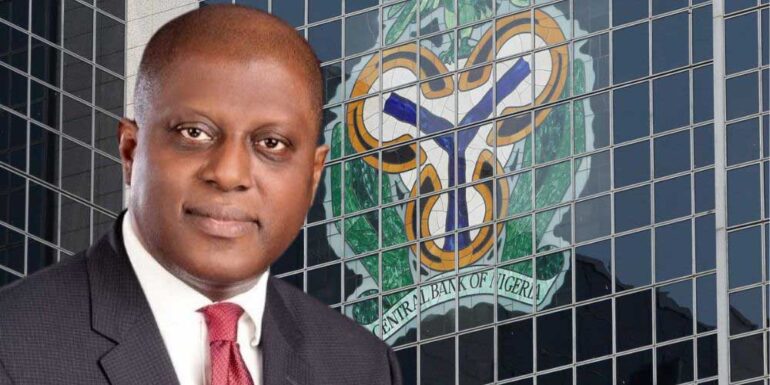The Governor of the Central Bank of Nigeria (CBN), Olayemi Cardoso, has reaffirmed the bank’s commitment to implementing policies that foster sustainable growth in the financial markets while ensuring overall economic stability.
The planned stability, he declared, will make Nigeria hit a $1tn economy by 2030.
Cardoso stated this on Friday in Abuja while making a presentation on the first half-year review of the bank’s activities in 2024, to the Senate Committee on Banking, Insurance, and Other Financial Institutions.
He outlined the CBN’s mandate and provided an in-depth analysis of Nigeria’s economic performance, recent policy measures, and the outlook for the remainder of the year 2024.
He recounted that since assuming duty in October 2023, the bank’s management had concentrated on stabilising the economy, restoring confidence in financial markets, and establishing a foundation for sustainable growth.
Some key focus areas he highlighted, included curbing inflation, stabilising the exchange rate, enhancing financial sector supervision, promoting financial inclusion, and increasing transparency in monetary policy decisions.
According to him, the resilience of the Nigerian economy in the first half of 2024, gave a growth rate of 2.98 per cent in the first quarter, up from 2.31 per cent during the same period last year.
He emphasised that the Services sector was the main economic driver, contributing 58.04 per cent to Gross Domestic Product with a growth rate of 4.32 per cent.
He noted that the Industrial sector also showed improvement, achieving a growth rate of 2.19 per cent.
On the persistent inflationary pressures, with headline inflation rising from 29.90 per cent in January to 34.19 per cent in June 2024, he noted that the pace of monthly increases had moderated, suggesting the effectiveness of the bank’s anti-inflationary measures.
He also highlighted the significant narrowing of the spread between official and BDC rates, indicating successful price discovery and reduced arbitrage opportunities.
Part of the strong indicators for the growing economy according to him, is the notable increase in external reserves, largely attributed to receipts from crude oil-related taxes and third-party payments.
“The ongoing recapitalisation efforts in the banking sector are focused on enhancing financial stability and driving progress toward reaching a $1 trillion economy by 2030”, he said.
He added that the capital adequacy ratio remained strong at 12.2 per cent, aside from the industry liquidity ratio which has also increased to 46.2 per cent, and the non-performing loan ratio fell to 3.8 per cent, reflecting enhanced liquid assets and better risk asset quality.
He further outlined key policy measures the Bank had implemented to tackle domestic macroeconomic challenges, including raising the policy rate to 26.25 per cent, increasing Cash Reserve Ratios, normalising Open Market Operations, and adopting Inflation Targeting as a new monetary policy framework.
He also highlighted the reforms in the foreign exchange market, which resulted in a convergence of official and Bureau de Change rates, promoting transparency and reducing market distortions.
In his opening remarks, the Chairman of the Committee, Senator Adetokunbo Abiru ( APC Lagos East ), lauded the CBN governor and his team for their efforts to stabilise the economy since taking office.
He chronicled the new management’s achievements as a reduction in month-on-month inflation from 2.64 per cent in January 2024 to 2.14 per cent in May 2024, increased exchange rate stability, and a $35 billion boost to the nation’s external reserves.
These improvements, according to Abiru , had led to favourable ratings from global rating agencies and enhanced foreign portfolio inflow


